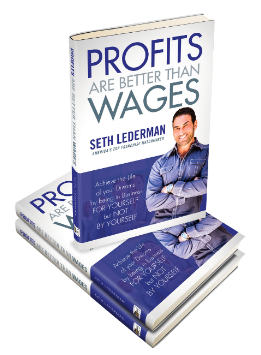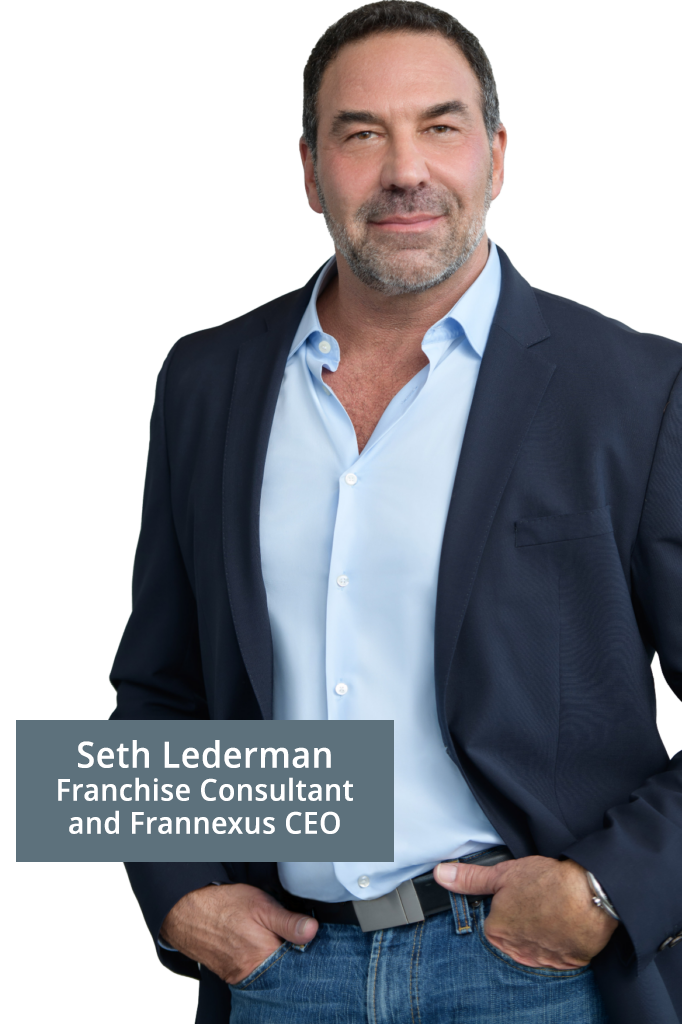How to Fund a Franchise with Your 401K
 by Seth Lederman
by Seth Lederman
But there is an option that puts you in the driver’s seat and can provide a secure future for you and your family — owning a franchise. When you invest in yourself, you open up a world of possibilities. But where can you find the necessary funds to establish your franchise? What are your options?

Your franchise business funding options

Some lucky people may have significant savings to cover the capital needed to launch a franchise and pay expenses until it becomes profitable. Others may not have that level of funding available. But they may have family or friends who are willing to loan them the necessary funds. This option may be appealing, especially if the individual is ready to offer more attractive interest rate options than a lending institution would. But borrowing money from family or friends carries risks. It can take time for a new franchise to turn a profit. During that time, you may struggle to make the monthly payments to your family member, resulting in stress in the relationship. Worst-case scenario, the business doesn’t succeed, and you have no way of paying the money back, and the friend can not recoup their initial investment. Another option is a home equity loan, but that also carries significant risks — the biggest being if you cannot keep up the payments, you risk losing your home.
Finally, if you have looked into a small business loan, you know that most banks will want you to provide 20% to 30% of the franchise’s total cost upfront before giving you a loan. Not having that level of funds readily available doesn’t have to be the end of your dream, however. You could also look into securing a loan through the Small Business Administration (SBA), which is still a potentially attractive option for many. But it will involve a complicated loan process, and you will be in debt and paying interest on that money. If that doesn’t sound appealing, there is another way — Rollover For Business Start-Ups (ROBS).
Why your retirement funds?

Taking advantage of ROBS to fund your franchise start-up costs is also not the same as borrowing from your 401(k), also known as a 401(k) loan. This loan option allows people to borrow from their retirement account for a short-term financial hardship. While it can legally be used to fund your franchise, there are some risks. For instance, you can only borrow up to $50,000 or 50% of the account’s balance, whichever is the lesser amount. The funds borrowed must be repaid in full within two months if you leave your job that the 401(k) is offered through. So if the company closes or isn’t able to juggle that job and run your franchise, you will be financially liable for that money being returned to your retirement account. Failing to repay it in that time frame will result in taxes and penalties. Finally, not all employers even offer this as an option with a 401(k).
Funding your franchise with ROBS

The key is to enlist a professional’s help to ensure that you access the funds from your 401(k) correctly. If you don’t, you risk paying penalties. For instance, if you have $200K in an IRA or 401(k) and use ROBS to take an early withdrawal to fund your franchise, you may be required to pay a 10% penalty and as much as 30% in ordinary income taxes. This can reduce the amount of available capital you have to only $120K of your original $200K.
However, a professional with knowledge of all of the Internal Revenue Service (IRS) and Department of Labor (DOL) regulations can help you access these funds in your retirement accounts without the risk of early withdrawal penalties while maintaining the tax-deferred status of the funds. Best of all, you won’t incur any personal or business debt, and in many cases, the money can be available quickly, possibly even in as few as ten business days. ROBS funds can be used to pay start-up costs or even pay yourself a salary while you get your new franchise business established.
Franchise Funding FAQs

Still, have questions about if ROBS is right for you and your franchise dreams? Below are some commonly asked questions and answers to address any additional concerns you may have:
Q: Is the IRS okay with this type of financing?
A: ROBS has become an integral part of how many small businesses obtain money to get up and running. The process of using funds from aa 401(k) is based on Internal Revenue Code and ERISA regulations that have been in use by large corporations for years.
Q: Which retirement plans are eligible for ROBS?
A: Most retirement plans that can be rolled into a 401(k) account can be used for ROBS funding. Here are the most commonly used plans:
- 401(k)s
- Traditional IRAs
- SIMPLE IRA
- SEP-IRA
- Governmental 457(b)
- 403(b)
- Keogh plan
- Thrift Savings Plan
- Roth 401(k), 403(b), or 457(b) accounts
According to IRS guidelines, Roth IRAs are not eligible for ROBS because Roth IRA accounts can’t be rolled into a 401(K) plan.
Q: What should a small business owner consider before taking advantage of this program?
A: Working with an expert — someone who has extensive experience in tax and retirement regulations — is a must. ROBS plans are specialized, and rules from the IRS have been established. You want someone that can support you in the event of an IRS audit or Department of Labor review of your retirement plan.
Q: What businesses can I start or buy using ROBS?
A: ROBS lets you buy or start nearly any active, legal business or franchise. And it isn’t limited to independent companies, which makes it ideal for a franchise since it is a small business. ROBS can’t be used to fund a business that only invests or loans capital or a company that acts as a means of passive income.
The business typically needs to be legal on a federal level, not just at the state level. Therefore, something like marijuana distribution, which is only permitted in some states, would not be eligible for ROBS funding.
Q: What do I have to do as a business owner who uses ROBS?
A: There are guidelines available through both the IRS and Department of Labor for small business or franchise owners to use regarding ROBS to ensure that you stay compliant. For instance, as the owner, you must be an active employee who takes a salary. It doesn’t matter what work you do so long as you play an active role, typically viewed as a minimum of 20 hours a week. What it means is you can’t use ROBS to fund a franchise business for a spouse or child.
Q: Do I have to roll all my retirement savings into my new business with ROBS?
A: You can use as much or as little of the money in your 401(k) as you want. It is generally recommended that you use at least $50,000 because of diminishing returns using a smaller amount. Plus, if you decide later that you need to roll over more funds, you have that option with an Additional Rollover Capital (ARC) transaction.
“So many of our dreams at first seem impossible, then they seem improbable, and then, when we summon the will, they soon become inevitable.” –Christopher Reeve.
Conclusion
If you think that ROBS might be the best path to helping you obtain your dream of owning your own franchise business, Frannexus will help you find the right funding partners to move forward. Contact us today to learn how Frannexus can help you get started on the path to a secure future as your own boss, running a successful franchise.
DISCOVER A BETTER WAY TO EARN WHILE LIVING
Profits are Better Than Wages

In “Profits are Better Than Wages”, experienced franchise advisor, Seth Lederman answers the “how” and “why” of going into business for yourself.
Get the News that Franchise Investors Want
Sign-up for FranBlog
Sign-up for occasional updates on the latest opportunities in franchising



CONTACT THE EXPERIENCED ADVISORS AT FRANNEXUS
Your franchise search just got easier with Frannexus
NO COST TO YOU
OUR FEES ARE PAID BY THE FRANCHISE BRANDS

